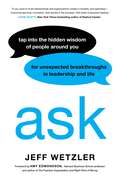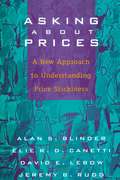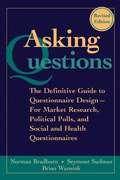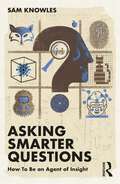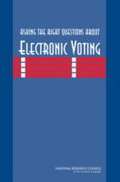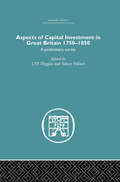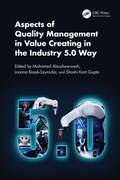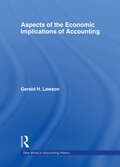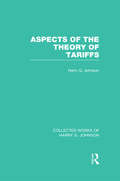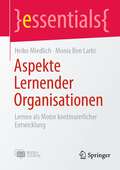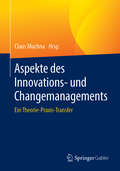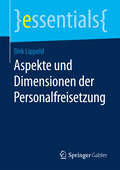- Table View
- List View
Ask: Tap Into the Hidden Wisdom of People Around You for Unexpected Breakthroughs In Leadership and Life
by Jeff WetzlerGlobally recognized expert on learning and leadership, Jeff Wetzler offers a hands-on, surprisingly effective way to find out what others really think, know, and feel. Ask leads to smarter decisions, more creative solutions, and deeper relationships. Too often, we don&’t find out what&’s truly on others&’ hearts and minds because we don&’t know how to ask the right questions in the right ways. Co-founder of Transcend and former international business consultant and Teach for America executive Jeff Wetzler wants to show you how to fix that. In Ask, he brings you a powerful method called The Ask Approach™, based on a simple premise: that tapping into what other people truly think, know, and feel is a game-changing superpower. In Section I, Wetzler reveals the most common things that people think and feel but often keep to themselves, as well as the key reasons why they choose to withhold information that could be valuable to you and your organization. Section II delves into the five steps of the Ask Approach, each answering an essential question. Choose Curiosity: How can you awaken your curiosity to make new discoveries and unexpected connections? Make it Safe: How do you make it easier for people to tell you hard things? Pose Quality Questions: What questions will best tap into the wisdom of anyone you ask? Listen to Learn: How can you hear what someone is really trying to tell you? Reflect & Reconnect: How do you turn talk into action? Section III helps you make asking an everyday superpower – not only for yourself but also for your team and organization, as well as for the next generation and society at large. The skills and messages of Ask could not be more timely. In a fast-changing world where AI is supplanting an increasing range of skills, the ability to learn from and connect with other people is one of the most important, fulfilling and uniquely human capabilities to master.
Ask: The Counterintuitive Online Method to Discover Exactly What Your Customers Want to Buy...Create a Mass of Raving Fans...and Take Any Business to the Next Level
by Ryan LevesqueThe go-to guide for small-business owners and entrepreneurs to discover exactly what consumers want to buy and how to get it to them.As a small-business owner, entrepreneur, or marketer, are you absolutely certain that you know what your customer wants? And even if you know what your customer wants, are you sure that you are able to clearly communicate that you offer the exact thing that they are seeking?In this best-selling book, Ryan Levesque lays out his proven, repeatable, yet slightly counterintuitive, methodology for understanding the core wants and motivations of your customer. Levesque's Ask Method provides a way to discover what customers want to buy by guiding them through a series of questions and customizing a solution from them so they are more likely to purchase from you. And all through a completely automated process that does not require one-on-one conversations with every single customer.The Ask method has generated over $100 million in online sales across 23 different industries and counting. Now it is your turn to use it to create a funnel, skyrocket your online income, and create a mass of dedicated fans for you and your company in the process.
Asking About Prices: A New Approach to Understanding Price Stickiness
by Alan Blinder David E. Lebow Elie R.D. Canetti Jeremy B. RuddWhy do consumer prices and wages adjust so slowly to changes in market conditions? The rigidity or stickiness of price setting in business is central to Keynesian economic theory and a key to understanding how monetary policy works, yet economists have made little headway in determining why it occurs. Asking About Prices offers a groundbreaking empirical approach to a puzzle for which theories abound but facts are scarce. Leading economist Alan Blinder, along with co-authors Elie Canetti, David Lebow, and Jeremy B. Rudd, interviewed a national, multi-industry sample of 200 CEOs, company heads, and other corporate price setters to test the validity of twelve prominent theories of price stickiness. Using everyday language and pertinent scenarios, the carefully designed survey asked decisionmakers how prominently these theoretical concerns entered into their own attitudes and thought processes. Do businesses tend to view the costs of changing prices as prohibitive? Do they worry that lower prices will be equated with poorer quality goods? Are firms more likely to try alternate strategies to changing prices, such as warehousing excess inventory or improving their quality of service? To what extent are prices held in place by contractual agreements, or by invisible handshakes? Asking About Prices offers a gold mine of previously unavailable information. It affirms the widespread presence of price stickiness in American industry, and offers the only available guide to such business details as what fraction of goods are sold by fixed price contract, how often transactions involve repeat customers, and how and when firms review their prices. Some results are surprising: contrary to popular wisdom, prices do not increase more easily than they decrease, and firms do not appear to practice anticipatory pricing, even when they can foresee cost increases. Asking About Prices also offers a chapter-by-chapter review of the survey findings for each of the twelve theories of price stickiness. The authors determine which theories are most popular with actual price setters, how practices vary within different business sectors, across firms of different sizes, and so on. They also direct economists' attention toward a rationale for price stickiness that does not stem from conventional theory, namely a strong reluctance by firms to antagonize or inconvenience their customers. By illuminating how company executives actually think about price setting, Asking About Prices provides an elegant model of a valuable new approach to conducting economic research.
Asking Questions: The Definitive Guide to Questionnaire Design
by Brian Wansink Seymour Sudman Norman M. BradburnSince it was first published more than twenty-five years ago, Asking Questions has become a classic guide for designing questionnaire -- the most widely used method for collecting information about people's attitudes and behavior. An essential tool for market researchers advertisers, pollsters, and social scientists, this thoroughly updated and definitive work combines time-proven techniques with the most current research, findings, and methods. The book presents a cognitive approach to questionnaire design and includes timely information on the Internet and electronic resources. Comprehensive and concise, Asking Questions can be used to design questionnaires for any subject area, whether administered by telephone, online, mail, in groups, or face-to-face. The book describes the design process from start to finish and is filled with illustrative examples from actual surveys.
Asking Smarter Questions: How To Be an Agent of Insight (Using Data Better)
by Sam KnowlesInsight is the superpower that drives innovation and enables us to understand the world from other peoples’ points of view, be they customers or colleagues, advocates or competitors. This new book from data storyteller Sam Knowles explains how to ask smarter questions – questions that, by design, stimulate more useful answers. This is the shortcut to better productivity, fast-tracked innovation, and organisational success – for businesses, universities, charities, and governments. For too long, the simple act of asking questions has been overlooked as almost too trivial to contemplate. Asking Smarter Questions seeks to champion the art of curiosity by setting out a framework to make every question count. The fundamental building blocks of insight are data and information, joined together in new and often unpredictable ways. The way we surface new data and information and make meaningful connections between data points is by asking smarter questions. By taking this approach, you can make your organisation a less confrontational, more collaborative, and more productive environment in which to work – particularly in the more distributed and remote settings that will characterise the 2020s. Managers, directors, and leaders will find the universal principles, expert interviews, and data-driven recommendations a source of inspiration to share with their teams. Asking Smarter Questions is aimed at professionals in businesses and organisations across all sectors, and will help those working in many functions, including market research, intelligence, insight, analytics, strategy, marketing, communications, planning, product development, and innovation.
Asking The Right Questions About Electronic Voting
by National Research Council of the National AcademiesMany election officials look to electronic voting systems as a means for improving their ability to more effectively conduct and administer elections. At the same time, many information technologists and activists have raised important concerns regarding the security of such systems. Policy makers are caught in the midst of a controversy with both political and technological overtones. The public debate about electronic voting is characterized by a great deal of emotion and rhetoric. Asking the Right Questions About Electronic Voting describes the important questions and issues that election officials, policy makers, and informed citizens should ask about the use of computers and information technology in the electoral process--focusing the debate on technical and policy issues that need resolving. The report finds that while electronic voting systems have improved, federal and state governments have not made the commitment necessary for e-voting to be widely used in future elections. More funding, research, and public education are required if e-voting is to become viable.
Asking the Right Questions at the Right Time: Evaluating New Growth Opportunities
by Rowan Gibson Peter SkarzynskiWhat criteria should your company be using to evaluate new opportunities, and how do you know whether you are asking the right questions at the right stage of the idea development process? This chapter provides some guidelines for answering these important questions.
Asociacion Colombiana de Industrias Plasticas (Acoplasticos)
by Michael E. Porter Willis EmmonsAcoplasticos was established in 1961 as a lobbying group for Colombia's major plastics manufacturing companies. In the early 1980s, the organization shifted its focus toward improving the productivity of the Colombian plastics and rubber cluster, which also included certain petrochemical, manmade fiber, paint, and ink industries. Over time, the organization's activities expanded to include cluster technology upgrading, training, trade fair production, joint procurement, and information collection and dissemination. Despite significant improvement in the performance of the Colombian plastics and rubber cluster during the 1990s, however, Executive Director Carlos Garay was concerned about the challenging economic and political environment in 2002.
Aspect Medical Systems
by Richard Bohmer Naomi AtkinsEntrepreneur Nassib Chamoun has created an innovative anesthesiology device that monitors patients' consciousness levels during surgery. This case tracks how Chamoun and his executive team built the infrastructure of the company and actively managed the adoption process through product design and development, clinical trials, close work with regulatory agencies, selection of appropriate lead users, and active management of the learning process for the lead users. Now faced with a relatively unfavorable market and increasing competition, Chamoun must decide how to increase current and future adoption of the monitor. Three options are presented: contracting for OEM deals with large, well-established distributors; expanding the range of services offered to include other aspects of the perioperative process; and exploring the use of the monitor in other clinical areas such as Alzheimer's.
Aspects of British Economic History: 1918-1925 (Routledge Library Editions: Landmarks in the History of Economic Thought #6)
by A. C. PigouCovering the period from November 1918 to the restoration of the Gold Standard in the UK in April 1925, this book, originally published in 1947, sets out and explains the economic facts of the immediate post-war period. There are sections on employment, production, government intervention in industry, the monetary factor, real income and real wages. A statistical appendix brings together in four sections a number of important tables which supplement the text.
Aspects of Capital Investment in Great Britain 1750-1850: A preliminary survey, report of a conference held the University of Sheffield, 5-7 January 1969
by Sidney Pollard J. P. P. HigginsThese six papers were originally delivered to a conference at Sheffield University in 1969 and represent an overview of a research project led by Professor Pollard, which aimed to construct a series of annual figures of capital formation for the Industrial Revolution in Britain - both in aggregate and broken down into main sectors. Each paper is accompanied by a summary of the discussion which followed. The problems encountered in such an undertaking are examined, a major one being definition: what to include in the term 'capital', how to measure or isolate expenditure under that heading, and how to deal with changes which have made the definitions and practices of present-day national income estimates inapplicable to earlier centuries. Sources are also examined in depth as statistical information is not only uncertain and often unreliable, but of different value and completeness for different sectors of the economy. This book was first published in 1971.
Aspects of Quality Management in Value Creating in the Industry 5.0 Way
by Mohamed Abouhawwash Joanna Rosak-Szyrocka Shashi Kant GuptaIndustry 5.0 suggests a new stage of industrial growth that expands upon earlier stages of industrialization, emphasizing human-centered approaches to technology and digital sustainability. With its innovative approach, Industry 5.0 will contribute to the resolution of the manufacturing–social need mismatch issue. In contrast to other industrial revolutions that placed more emphasis on the financial aspects of sustainability, the Industry 5.0 vision places more emphasis on social demands and human centricity.This book Aspects of Quality Management in Value Creating in the Industry 5.0 Way focuses on the challenges that companies in the field of quality management in Industry 5.0 face, particularly in relation to client value aspects. The book devotes a lot of space to the issues of client satisfaction, cybersecurity, e-commerce, TQM, and collaborative work between robots and humans in the company.Features: Characterizes the new role of value for customer 5.0 in the augmented era Analyzes the collaborative work between robots and humans in Industry 5.0 conditions Investigates the complex relationship between satisfaction, awareness, perception, attitude, and demographics, as well as examining how technological advances and market performance impact client satisfaction Includes: E-client in the cyber-security aspect Multi-Agent Technology (MAT) to maintain Total Quality Management (TQM) in manufacturing and MAT’s role in TQM A novel structure for innovation, "Innovation Control (IC)," to integrate creative thinking and business strategy Industry 5.0 inside the automotive sector Technetronic Education (TE) in Industry 5.0: advantages, challenges, and implications Ethical aspects and challenges associated with developing technologies This book Aspects of Quality Management in Value Creating in the Industry 5.0 Way serves as a future road map, guiding readers through the complexities of industrial progress.Academic researchers, along with senior undergraduate and graduate students, are the primary target audience.
Aspects of Sales Management: An Introduction
by Frank V. CespedesDiscusses certain general issues that affect sales-management requirements in most companies: 1) the nature of the salesperson's "boundary role" in the organization, and 2) the relevance and limits of compensation policies as a key means of affecting the salesperson's effective performance of that role. Also presents concepts and perspectives useful in analyzing sales situations encountered in case studies and on the job.
Aspects of the Economic Implications of Accounting (Routledge New Works in Accounting History)
by Gerald H. LawsonFirst published in 1997. Routledge is an imprint of Taylor & Francis, an informa company.
Aspects of the Energy Union: Application and Effects of European Energy Policies in SE Europe and Eastern Mediterranean (Energy, Climate and the Environment)
by Michalis MathioulakisThis book provides a comprehensive exploration of some of the most critical issues regarding the EU’s Energy Union policy. Applied European energy policies face a number of challenges ranging from the geopolitics of energy and energy regulation, to climate change, advancing renewable and gas technologies, and consumer empowerment structures. This book takes a multi-dimensional look into some of these vital issues regarding the European energy sector with a special focus on the effects the Energy Union policy has in two sensitive regional systems, Southeastern Europe and the Eastern Mediterranean.Energy, being by definition a multi-disciplinary field, presents a challenge for readers of any specific disciplinary background that need to grasp an overall understanding of the various aspects of this exciting sector. This book’s objective is to offer the opportunity for readers to get a quality, hands-on overview of the Energy Union by the professionals and academics that interact with it on a daily basis.
Aspects of the International Banking Safety Net
by G. G. Johnson Richard K. AbramsDuring the 1970s, international lending by banks came to play a dominant role in the flow of international finance. In the early 1980s, banks have continued to play a major role, but the recent evidence of strains in international banking has raised questions about the prospects for continuity of international intermediation by banks.
Aspects of the Theory of Tariffs (Collected Works of Harry G. Johnson)
by Harry JohnsonAn internationally acknowledged authority on all aspects of the theory of international trade and payments, this book collects Harry Johnson’s contributions to the study of international trade, including a critique of the theory of effective protection. The book discusses: the integration of income distribution and other aspects of the economy into the positive theory of tariffs the issues raised by the use of tariffs to promote economic development the implications of distortions of various kinds in the working of competition for tariff theory and policy the costs of protection the implications of effective protection for world economic development and the economic effects of trade preferences the question of free trade and the extent to which it requires the harmonization other aspects of economic policy.
Aspekte Lernender Organisationen: Lernen als Motor kontinuierlicher Entwicklung (essentials)
by Heiko Miedlich Monia Ben LarbiDas wichtigste Lernen findet nicht in Fortbildungen statt, sondern mitten im Arbeitsalltag. Jede Entscheidung, jeder Konflikt, jede Produktentwicklung, jedes Kund:innengespräch ist ein:e mächtige Lehrer:in. Lernen findet hierbei immer auf einer individuellen und einer kollektiven Ebene statt, soweit das System auf Lernen ausgerichtet ist. Lernende Organisationen ermöglichen es daher nicht nur Menschen, sich kontinuierlich zu entwickeln, sondern auch Produkten, Stellen, Strukturen und Kulturen.Den kostenlosen Zugang zum Online-Kurs finden Sie direkt im Buch.
Aspekte des Innovations- und Changemanagements: Ein Theorie-Praxis-Transfer
by Claus MuchnaDas Werk präsentiert ausgewählte Themen aus dem Innovations- und Changemanagement. Beide Bereiche stellen im derzeitigen Markt- und Wettbewerbsumfeld zentral bedeutende Managementaufgaben dar. Dies betrifft alle Branchen und Wirtschaftssektoren, Großkonzerne wie klein- und mittelständische Unternehmen, aber auch öffentliche Institutionen oder Organisationen im Non-Profit-Sektor. Innovations- und Veränderungsprozesse sind dabei stets unmittelbar miteinander verknüpft und stehen in Wechselwirkung zueinander.Anhand der Betrachtung konkreter Problemstellungen in Unternehmen aus verschiedenen Sektoren, anhand von Praxisbeispielen und in Form einer empirischen Studie legt das Werk einen besonderen Fokus auf den Transfer zwischen Theorie und Praxis und spricht damit die Zielgruppen Praxis und Wissenschaft gleichermaßen an. Eine Einführung in das Innovations- und Changemanagement und dessen Bedeutung für das (strategische) Management setzt die Beiträge in den grundlegenden Kontext. Die Beitragsautoren sind Absolventen des MBA-Studiengangs General Management der HFH Hamburger Fern-Hochschule, die ihr Thema der Master-Thesis für dieses Werk neu aufbereitet haben.
Aspekte und Dimensionen der Bewerbermarkt-Segmentierung (essentials)
by Dirk LippoldDieses essential beschreibt den Weg zur richtigen Segmentierung des Bewerbermarktes als ersten Schritt in der Prozesskette zur Personalbeschaffung aus der Perspektive eines personalsuchenden Unternehmens. Dirk Lippold zeigt, wie Unternehmen sich einen #65533;berblick #65533;ber ihren Bewerbermarkt verschaffen und mit entsprechenden Ma#65533;nahmen eine erfolgreiche Positionierung und Kommunikation mit dem Bewerber herbeif#65533;hren. Diese Arbeitsmarktsegmentierung, der nicht eine volkswirtschaftliche Sicht, sondern eine einzelwirtschaftliche Perspektive zugrunde liegt, ist Gegenstand des essentials.
Aspekte und Dimensionen der Personalfreisetzung (essentials)
by Dirk LippoldDas essential liefert einen #65533;berblick #65533;ber alle relevanten Ma#65533;nahmen der Personalfreisetzung - von Instrumenten wie Versetzung, Arbeitszeitverk#65533;rzung und Einstellungsbeschr#65533;nkungen bis hin zur Anwendung des ,,letzten" Mittels, der K#65533;ndigung. Den verschiedenen Formen der K#65533;ndigung wird ein separates Kapitel gewidmet. Dirk Lippold zeigt, wie Ma#65533;nahmen zur Personalfreisetzung so geplant und ausgef#65533;hrt werden k#65533;nnen, dass negative Begleiterscheinungen f#65533;r Mitarbeiter und Unternehmen minimiert werden.
Aspen Aerogels
by William A. Sahlman Taz PirmohamedDescribes a newly formed manufacturer of insulation materials. The company has developed and patented a new insulation material that can be used in a wide range of markets. Capital must be raised to finance building a manufacturing facility and fund early market penetration.
